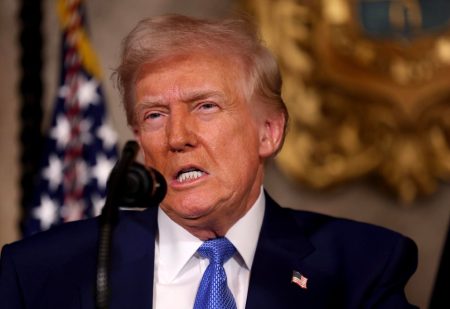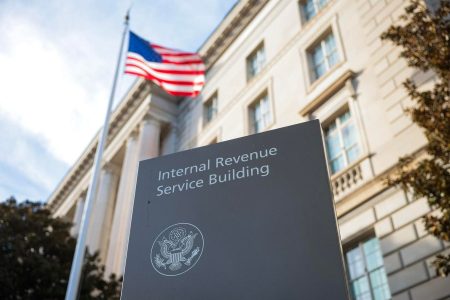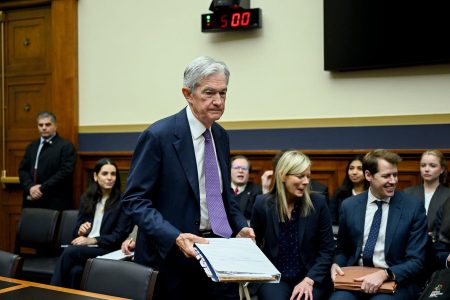The healthcare insurance industry faces scrutiny following the shooting of a prominent CEO and proposed legislation targeting the industry’s pharmacy benefit management (PBM) practices. Former President Trump’s prior remarks about removing “middlemen” in the pharmaceutical supply chain, seemingly targeting PBMs, have already impacted the stock prices of industry giants like CVS Health (CVS) and UnitedHealth Group (UNH). While both companies have experienced stock declines, CVS has fallen more dramatically, currently trading at a significantly lower valuation multiple compared to UNH. This analysis will compare the two companies across various metrics to determine which presents a more attractive investment opportunity, ultimately suggesting that CVS, despite some weaknesses, offers greater upside potential at its current valuation.
While UNH has historically exhibited stronger revenue growth and profitability, the substantial valuation gap between the two companies warrants closer examination. UNH’s revenue has grown at an average annual rate of 13% between 2020 and 2023, outpacing CVS’s 10% growth during the same period. This difference can be attributed partly to the surge in demand for COVID-19 related services that benefited CVS in the earlier part of this period, a trend which has since subsided. UNH’s superior growth also stems from the robust performance of its OptumHealth segment, which provides healthcare through local medical groups and has experienced significant growth due to rising demand for value-based care arrangements and at-home services. While CVS has seen growth in its healthcare benefits segment, driven by increasing membership in Medicare and Commercial plans, it has lagged behind UNH’s overall performance.
Profitability also favors UNH. While both companies have seen their operating margins contract in recent years due to rising medical costs, UNH has consistently maintained a higher margin compared to CVS. This difference in profitability is reflected in their respective stock prices, with investors willing to pay a premium for UNH’s stronger earnings performance. The rising medical benefits ratio, a key indicator of the proportion of premiums spent on healthcare claims, poses a challenge to both companies. The aging U.S. population and increasing healthcare costs are expected to keep this ratio elevated in the near term, impacting profitability for both CVS and UNH.
Furthermore, UNH boasts a stronger financial position than CVS. UNH carries a significantly lower debt-to-equity ratio, indicating less reliance on borrowed funds, and maintains a higher cash reserve. CVS’s high debt-to-equity ratio partially reflects the significant decline in its market capitalization, highlighting the impact of its recent stock performance on its overall financial standing. This stronger financial foundation provides UNH with greater flexibility and resilience in navigating market uncertainties and pursuing growth opportunities.
Examining historical stock performance, UNH has significantly outperformed CVS in the past three years. While UNH’s stock price has increased by about 60%, CVS’s stock price has declined by 15% during the same timeframe. Both stocks have experienced periods of volatility, but UNH has generally delivered more consistent returns for investors. However, it is important to note that past performance is not indicative of future results, and current market conditions and valuations play a crucial role in assessing investment potential.
Despite UNH’s stronger historical performance and financial metrics, CVS presents a compelling investment case based on its current valuation. CVS trades at a significantly lower price-to-earnings (P/E) ratio compared to both its historical average and UNH’s current multiple. This discounted valuation suggests that the market may be undervaluing CVS’s potential for future growth and profitability improvement. While the proposed PBM legislation poses a risk to both companies, the potential negative impact appears to be already priced into CVS’s current stock price, while UNH may have further to fall if the legislation passes. Moreover, CVS is actively undergoing restructuring efforts aimed at enhancing efficiency and reducing costs, which could boost its profitability in the coming years.
Ultimately, the investment decision between CVS and UNH hinges on an investor’s risk tolerance and investment horizon. UNH represents a more established and consistently profitable company, albeit at a premium valuation. CVS, on the other hand, offers a potentially higher upside with a greater margin of safety due to its significantly lower valuation. While acknowledging UNH’s strengths in revenue growth, profitability, and financial stability, the analysis concludes that CVS offers a more attractive investment opportunity for investors seeking potential value appreciation. The substantial discount in its valuation, coupled with its ongoing restructuring efforts, suggests that CVS has the potential to outperform UNH in the long run, despite the inherent risks associated with the evolving healthcare landscape and potential regulatory changes. However, investors should carefully weigh the potential risks and rewards before making an investment decision. It is also important to consider diversifying investments within a broader portfolio to mitigate the risks associated with individual stock selections.










